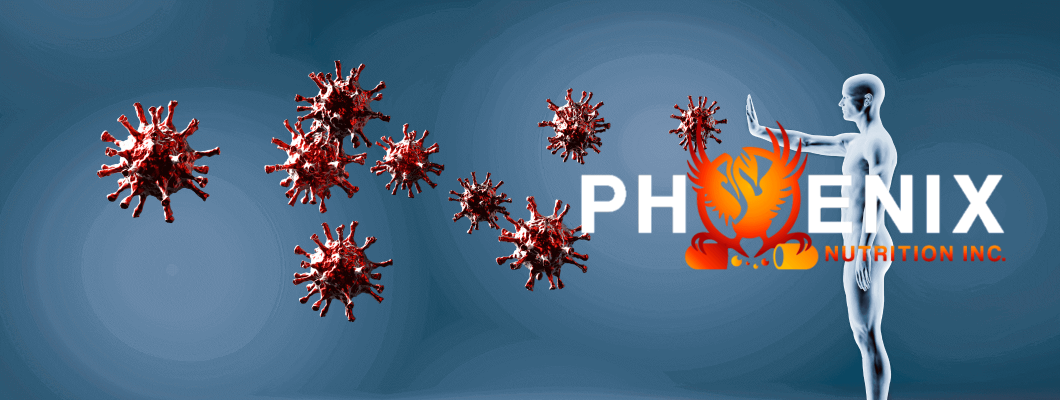
The human immune system contains various types of white blood cells, such as T cells and B cells, as well as antibodies and other molecules and structures that help the body recognize and respond to foreign invaders, such as bacteria and viruses. The immune system also includes the thymus, spleen, lymph nodes, and bone marrow, which play important roles in the production and function of white blood cells.
The immune system involves the complement system, a group of proteins that work together to enhance the ability of antibodies and white blood cells to fight invading organisms. Therefore if the immune system becomes defective it becomes important to take the help of a doctor who possibly would suggest some immune boosting supplements to strengthen your lost immunity.
But what are immune boosting supplements?
Immune-boosting supplements are dietary supplements that are intended to support the function of the immune system. Some examples include:
- Vitamin C: an antioxidant that helps the body produce white blood cells and is known for its role in supporting the immune system.
- Vitamin D: a vitamin that helps the body produce white blood cells and is important for the function of the immune system.
- Zinc: a mineral that plays a role in the production and function of white blood cells and is important for the immune system.
- Echinacea: an herb that is sometimes taken to support the immune system and reduce the severity and duration of colds and other upper respiratory infections.
- Elderberry: a berry extract that is often used to support the immune system, particularly during the cold and flu season.
- Andrographis: an herb that is used to support the immune system and reduce symptoms of upper respiratory infections.
- Garlic: a vegetable that is used to support the immune system and has antibacterial, antiviral, and antifungal properties, etc.
It's important to note that some of these supplements have not been proven to be effective and some of them can have side effects if taken in large doses or for prolonged periods. It's always a good idea to talk to your doctor before taking any supplements, especially if you have any health conditions or are taking any medications. Also, it is important to note that no supplements are meant to cure or prevent disease.
The 13 Best Immune Boosting Supplements to Strengthen your Immune System
The effectiveness of immune boosting supplements can vary, and many have not been proven to be effective through rigorous scientific studies. Some vitamins and minerals, such as vitamin C and zinc, are important for the function of the immune system and may help to support it when taken in appropriate doses. However, taking large doses or prolonged use of these supplements may not necessarily lead to a stronger immune system and could even have negative effects.
Herbal supplements, such as Echinacea and Elderberry, have been studied to some extent, but the results are mixed. Some studies suggest that they may help to reduce the severity and duration of colds, while others have found no benefit. Andrographis, Garlic, and other herbs have also been studied but the results are inconclusive.
It's important to remember that a balanced diet, regular exercise, adequate sleep, and stress management are key factors that can help to support the immune system. Also, it's always a good idea to talk to your doctor before taking any supplements, especially if you have any health conditions or are taking any medications. Here is a collected list of the best immune boosting supplements depending on the ingredient that is favorable for strengthening the body against mild odds.
1. Immunaburst: Liquid Immune Boosting Supplements
Immunaburst is an oral liquid immunity booster that is most effective for individuals with low immune systems. It enhances the immune-boosting system of your body and provides more energy. This supplement is brought to you by Phoenix Nutrition and comes with all essential vitamins and minerals to supercharge your immune system.
These immune-boosting supplements are an innovative new way to support your immune system. This supplement provides a powerful blend of vitamins, minerals, and antioxidants that can help give your body the boost it needs to fight off infections and illnesses. Immunaburst's all-natural ingredients are designed to be quickly absorbed by the body for maximum effect.
The liquid drops provide a concentrated dose of key nutrients such as Vitamin C and Zinc, which are both important for maintaining a healthy immune system. The drops also contain L-Citrulline powder which is most well-known for supporting athletic endurance & vitamin B-12 to support healthy nerve function and provide energy and maintain healthy metabolic function. Moreover, this supplement comes with Pyridoxine HCl that are known to support heart function, promote brain health, fortify the joints, and help aid healthy sleep.
Overall Immunaburst has the ability to stimulate the immune system and reduce inflammation associated with illnesses like colds and flu. In addition, Immunaburst can be taken daily to create a stronger defense against foreign invaders in the body.
2. Vitamin C
3. Zinc Immune Boosting Supplements
Zinc is an essential trace element found in a variety of foods and supplements. It plays a vital role in human health, as it helps with essential bodily functions such as growth and development, metabolism, and immunity. Zinc is important for the production of enzymes that help break down carbohydrates, proteins, and fats into usable energy sources. It also helps to maintain healthy skin, hair follicles, cells, bones, nerves, and organs. The recommended daily allowance (RDA) of zinc is 8mg per day for men over 19 years old and 11mg per day for women over 19 years old according to the National Institutes of Health (NIH).
It is also an essential mineral that plays a major role in helping build a great immune system and helps the body fight off infections and other illnesses, as well as aiding in cell growth and repair. Without zinc, the body would be unable to defend itself against viruses and bacteria. This makes it an important supplement for people who want to maintain their health and stay strong.
The human body needs zinc in order to create white blood cells which are integral components of the immune system. Zinc also helps with tissue regeneration, enabling wounds to heal faster and preventing infection. Additionally, zinc is important for producing hormones such as testosterone which can help regulate moods, energy levels, libido, and more! Many people don't get enough zinc from their diets alone. Therefore Supplements provide an easy way to ensure your body gets the zinc it needs for optimal health.
When it comes to choosing the best zinc supplement, there are several factors to consider. Quality is paramount - research brands that use high-quality ingredients and are made with GMP certification or other third-party verification systems such as NSF International or Consumer Labs. Additionally, look into forms of zinc that are easily absorbed by the body like chelated minerals or liquid formulas as these will help increase bioavailability and maximize absorption rates.
Those looking to boost their immunity would benefit from taking a daily supplement of zinc or eating foods rich in this mineral such as oysters, beef liver, and pumpkin seeds.
4. Vitamin D
5. Vitamin B6
Vitamin B6 is an essential nutrient that helps our bodies function properly by regulating hormones in our bodies that further increase immunity against illnesses and infections. It plays a crucial role in many of the body's metabolic processes and its deficiency can lead to significant health problems. Vitamin B6 is found in a variety of foods, such as fish, poultry, potatoes, bananas, chickpeas, and fortified cereals. Additionally, immune boosting supplements such as B6 can be taken as dietary supplements with other vitamins.
Vitamin B6 helps the body to make hemoglobin - the protein component of red blood cells - which carries oxygen throughout the body. This means it’s essential for healthy nerves and brain function too. It also helps reduce inflammation in the body by breaking down proteins from food into amino acids. Furthermore, vitamin B6 supports immune system functioning and helps metabolize fat and carbohydrates into energy for use by cells throughout the body.
It helps to boost immunity by assisting the body with the production of antibodies, which are responsible for fighting off any foreign invaders such as bacteria and viruses. Vitamin B6 also helps support the normal functioning of many of our body's systems, including the immune system.
B6 vitamin supplements are also involved in producing new red blood cells which transport oxygen throughout our bodies. This increases energy levels and can help ward off fatigue and illness caused by a weakened immune system. Vitamin B6 also helps to break down carbohydrates into glucose for energy, which also boosts metabolism and immunity.
6. Vitamin E
Vitamin E is a group of fat-soluble compounds that include both tocopherols and tocotrienols. It is an antioxidant, which means it helps to protect cells from damage caused by free radicals. It is important for maintaining healthy skin and eyes and also helps to boost the immune system. Vitamin E is also thought to play a role in preventing blood clots and may have benefits in the prevention and treatment of certain types of cancer. Food sources of vitamin E include vegetable oils, nuts, seeds, and green leafy vegetables. Some fortified foods also contain vitamin E, such as breakfast cereals.
It's important to note that the body absorbs and utilizes different forms of vitamin E differently, alpha-tocopherol being the most active form and widely found in supplements. It is a powerful antioxidant that can help protect and strengthen your body's natural defenses against illness and infection. Studies have shown that taking vitamin E supplements can help boost immunity, reducing the risk of illness and providing relief from symptoms of existing illnesses.
Vitamin E helps to strengthen the immune system by aiding in cell-signaling pathways, which allows our bodies to detect potential threats faster. Vitamin E also helps regulate inflammation, which can reduce the severity of an existing infection. Additionally, research has shown that vitamin E can help reduce oxidative stress, another factor that weakens the immune system, making it easier for viruses and bacteria to invade our bodies. If you are looking for a way to naturally build up your immunity without harsh medications or treatments vitamin E supplements can be right for you.
7. Selenium Mineral
Selenium is a trace mineral that is essential for human health. It is a component of several enzymes in the body, including those that are involved in antioxidant defense and thyroid hormone metabolism. Selenium also plays a role in the immune system and may help to prevent cancer and heart disease. It helps to support the immune system by inhibiting oxidative damage and enhancing immunity.
It has anti-inflammatory properties that can help to protect against infection and disease. It also helps with cell repair. Studies have shown that selenium helps stimulate the production of white blood cells in the body which are crucial for fighting off viruses and bacteria that can cause illnesses. Additionally, it aids in the production of antibodies which help fight off foreign invaders like viruses or bacteria.
This mineral is especially found in many foods, including Brazil nuts, seafood, liver, kidney, eggs, and some types of mushrooms. The amount of selenium in food depends on the selenium content of the soil in which the food was grown or raised. Selenium deficiency is rare, but it can occur in people with gastrointestinal disorders, HIV/AIDS, or other conditions that affect nutrient absorption. Selenium toxicity can occur if high doses of supplements are taken.
Selenium is important for the body, but it's important to note that it's required in small amounts, and too much can lead to toxicity, which can cause hair loss, white blotchy nails, and other symptoms. It's important to maintain a balance of selenium intake, either through diet or supplements.
8. Vitamin A
Vitamin A is a group of fat-soluble compounds that includes retinoids and carotenoids and is commonly available in most immune boosting supplements. Retinoids, such as retinol, are found in animal-derived foods and supplements, while carotenoids, such as beta-carotene, are found in plant-based foods. The body converts beta-carotene into retinol, which is the active form of vitamin A.
It is important for vision, immune function, cell growth, and differentiation. It plays a crucial role in maintaining healthy eyes, skin, and mucous membranes, and is essential for the normal development and function of the retina, a part of the eye that helps to detect light and color. Vitamin A also helps to boost the immune system and may have benefits in the prevention and treatment of certain types of cancer.
Food sources of vitamin A include liver, sweet potatoes, carrots, pumpkin, spinach, kale, collard greens, winter squash, and red bell peppers. Some fortified foods also contain vitamin A, such as breakfast cereals. It's important to note that excessive intake of Vitamin A can cause toxicity, which can result in symptoms such as headache, nausea, vomiting, hair loss, dry skin, and even in severe cases, liver damage.
It's important to note that before taking any supplement, it's always best to consult with a healthcare professional to ensure that it's appropriate for you and to determine the proper dosage. Also, vitamin A supplements can interact with certain medications, so it's important to disclose any medications that you're currently taking to your healthcare professional.
9. Folic Acid for Immunity
Folic acid supplements are proving to be an essential tool for boosting immunity. A vital member of the B vitamin family, folic acid has been linked to numerous health benefits including improved immune system functioning. Recent studies have highlighted how incorporating folic acid into daily diets can not only help fight off illnesses but can also help the body recover faster once sickness has taken hold.
Recent research suggests that consuming 400 micrograms of folic acid every day can assist with strengthening the body's defenses against infection and disease. As well as optimizing immune responses, folic acid is known to play a role in producing red blood cells and other important components within our bodies, making it great for overall health maintenance.
Folic acid is also important for the production of DNA and RNA, which are the genetic material that controls the growth and function of all cells in the body. This means that folic acid is important for the production of new cells, including immune cells such as white blood cells, which are essential for fighting off infections.
Additionally, folic acid supplements can help to reduce the risk of certain birth defects in pregnant women and lower the risk of heart disease and stroke, which can also be beneficial for the immune system. Overall, maintaining a healthy level of folic acid in the body can help to support the immune system by keeping the body in good overall health.
10. Magnesium
Magnesium is an essential mineral widely found in most immune boosting supplements that play a vital role in maintaining our overall health. Studies have shown that magnesium supplements can help to improve immunity by providing the body with essential nutrients and minerals. A lack of magnesium has been linked to impaired immune responses, making it important for individuals to ensure they are getting adequate amounts of this mineral in their diet or through supplementation.
It helps to activate T-cells, which are important for fighting off viruses and bacteria. Additionally, it helps the body produce natural killer cells, which are responsible for destroying infected cells and controlling inflammation. By boosting levels of these components of the immune system, magnesium supplements can help your body fight off infection more effectively. In addition to supporting immunity, studies have also found that magnesium may be beneficial in reducing stress levels.
The mineral is also required for the proper functioning of many enzymes in the body, including those involved in the immune response. Magnesium is also involved in the production of white blood cells, which are important for fighting off infections and other illnesses. Overall, magnesium is an important mineral for the proper functioning of the immune system, and maintaining an adequate intake of magnesium can help to support the immune system and reduce the risk of infections.
11. Copper
Numerous studies have shown that copper supplements can help boost the immune system and protect against various illnesses and diseases. It helps support the body's natural defenses by increasing certain white blood cells that fight off infection and inflammation. Copper also helps activate enzymes necessary for the body’s antioxidant defense system, which helps eliminate toxins from the bloodstream.
Copper is an essential mineral that plays a vital role in the immune system, and some people may take copper supplements to boost their immunity. Copper helps with the formation of white blood cells, which are important for fighting off infections and diseases. It also helps with the production of collagen, which is a protein that is important for the health of the skin and other tissues. This also improves iron absorption in the intestines – making it a vital part of any balanced diet. Supplements rich in copper ensure your body has enough of this critical mineral to maintain optimal health and immunity levels year-round.
Supplements rich in copper may be particularly beneficial for people who have a deficiency in this mineral, such as those with malabsorption syndromes or on a diet that lacks copper-rich foods. However, it is important to note that while copper is important for the immune system, it is not the only nutrient that is important and a balanced diet along with regular exercise is the best way to maintain a healthy immune system. It is always recommended to consult with a healthcare professional before starting any supplement regimen.
12. Iron Supplements
Iron is an essential nutrient that helps the body's immune system function properly. Iron is crucial for the production of red blood cells, which transport oxygen throughout the body and play a key role in fighting off infections. When your iron levels are too low, your immune system can't work as efficiently and you're more likely to become ill. Studies have shown that people with lower iron levels are more prone to becoming infected with viruses and bacteria compared to those with normal iron levels. Iron also helps regulate inflammation, a response from the immune system that helps protect against infection. Additionally, low iron levels can affect how well white blood cells function, reducing their effectiveness at defending against harmful microbes.
Therefore, it’s important for individuals to maintain healthy iron levels through diet or supplementation in order to keep their immunity strong and ward off illness-causing pathogens. Iron immune boosting supplements are dietary supplements that help to boost the body’s immunity. These supplements contain iron, which is an essential element for a strong and healthy immune system. Iron also helps the body to produce more white blood cells, which are necessary for fighting off infections and illnesses. Additionally, iron may help to reduce inflammation, improve circulation and increase energy levels.
Iron supplements come in various forms such as capsules, tablets, and liquids. Some common types of these supplements include ferrous sulfate, liquid iron drops, and iron-fortified foods. Additionally, some herbal remedies can also be used as iron immune-boosting supplements. Immune supplements filled with iron are dietary supplements that provide the body with additional sources of iron and several other vitamins and minerals.A doctor should be consulted before using any kind of supplement or herbal remedy as there may be side effects or interactions with other medications or conditions.
13. B Complex
B Complex supplements are a great way to help your body fight off illness and keep your immune system strong. B complex vitamins are essential for a healthy immune system, as they provide the body with the necessary nutrients it needs to stay healthy. They are especially important for those who are prone to illnesses or have weakened immune systems due to stress, poor diet, or other factors.
Taking B Complex immune boosting supplements can give you added protection against viruses and bacteria that cause illness. They contain multiple B vitamins which work together to boost white blood cell production and help reduce inflammation in the body. This allows your body's natural defenses to better protect against infection and disease. Additionally, B complex can also improve energy levels and cognitive function, making them beneficial even when you're feeling well.
B complex vitamins are essential for optimal health and well-being. They help the body produce energy, support immune function, and protect the nervous system. Many people don’t get enough of these vitamins through diet alone, so taking a B Complex supplement is recommended. There are many products on the market today claiming to be the best B Complex supplements. A high-quality B Complex supplement should contain all eight essential B Vitamins; thiamine (B1), riboflavin (B2), niacin (B3), pantothenic acid (B5), pyridoxine (B6), biotin (B7), folate or folic acid (B9) and cobalamin or cyanocobalamin (B12).
Frequently Asked Questions
Can immune-boosting supplements prevent illness?
There is limited scientific evidence to support the claim that immune-boosting supplements can prevent illness. While some vitamins and minerals are important for immune function, more research is needed to fully understand the effects of these supplements on human health.
Which vitamins and minerals are important for immune function?
Vitamins and minerals that are important for immune function include Vitamin C, Vitamin D, Vitamin E, zinc, and iron.
Are immune-boosting supplements safe?
The safety of immune-boosting supplements depends on several factors, such as the specific ingredients, dosage, and individual health status. Some immune-boosting supplements can interact with medications or have other side effects, so it's always best to consult with a healthcare provider before starting any new supplement.
Are natural immune-boosting supplements better than synthetic ones?
The effectiveness and safety of immune-boosting supplements depend on the specific ingredients and dosage, not whether they are natural or synthetic. Both natural and synthetic supplements can have potential benefits and risks, so it's important to consult with a healthcare provider before starting any new supplement.
Can I get enough immune-boosting nutrients from my diet?
Yes, it's possible to get enough immune-boosting nutrients from a balanced diet that includes a variety of fruits, vegetables, whole grains, and lean protein sources. Before starting any new supplement, it's a good idea to assess your current diet and make any necessary changes to ensure you're getting the nutrients you need.
Can immune-boosting supplements replace the need for vaccines?
No, immune-boosting supplements cannot replace the need for vaccines. Vaccines are one of the most effective ways to prevent illness and protect against disease. While supplements can support overall health and immune function, they cannot replace the protection provided by vaccines.
Are immune-boosting supplements regulated by the FDA?
Dietary supplements, including immune-boosting supplements, are regulated differently than drugs by the U.S. Food and Drug Administration (FDA). The FDA does not evaluate the safety or effectiveness of these products before they are marketed, so it's important to be cautious when considering any new supplement and to consult with a healthcare provider.
Conclusion:
Immune boosting supplements can be a great way to help fortify your body's natural defense system. They are usually composed of vitamins, minerals, and herbs which aid in building up the immune system and help fight off illnesses.
Vitamin B complex, Vitamin C, Zinc, and other herbal plants such as Andrographis, Echinacea, and Astragalus, are also some of the best immunity boosters when it comes to improving poor immunity, and these supplements help to regain lost immunity quickly. But while the immune-boosting supplements do appear to provide some benefits, they are not a reliable replacement for healthy living.
A diet rich in fruits and vegetables, regular exercise, adequate sleep, and stress reduction can all help to support a healthy immune system. Supplements can be helpful when used alongside these lifestyle choices, but ultimately it is important to focus on eating well, staying active, and managing stress. Taking the time to make smart decisions about your health will ensure you have the strongest possible defense against illness.
It is also important to consult with a doctor before taking any supplement to ensure it will not interfere with any other medications or cause any adverse reactions. Additionally, consult with a registered dietitian to determine if there are any dietary changes that could benefit you.
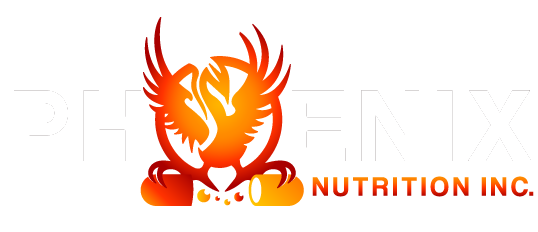
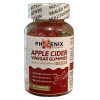
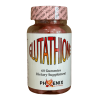
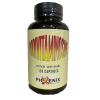
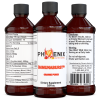
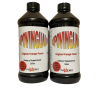
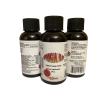
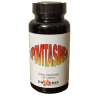

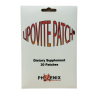
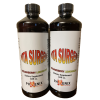

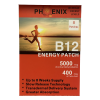

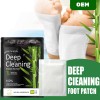
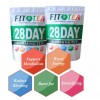
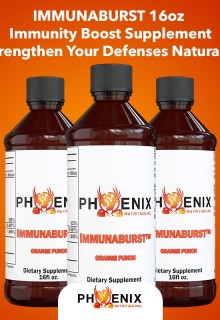
Leave a Comment